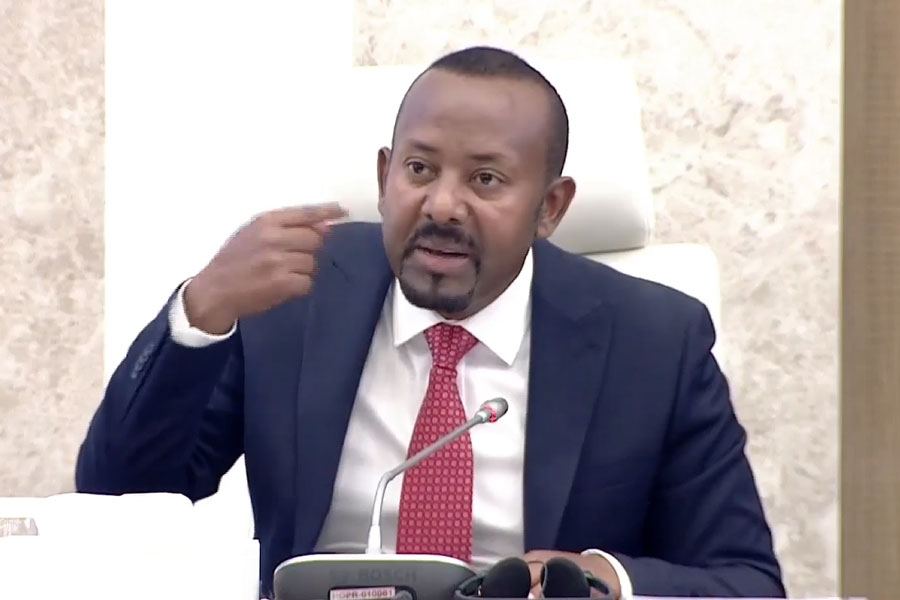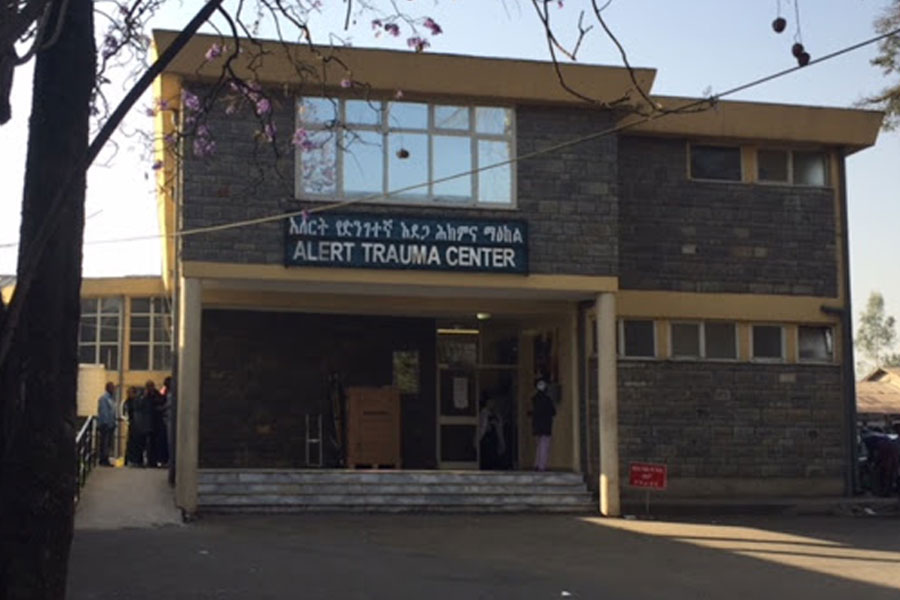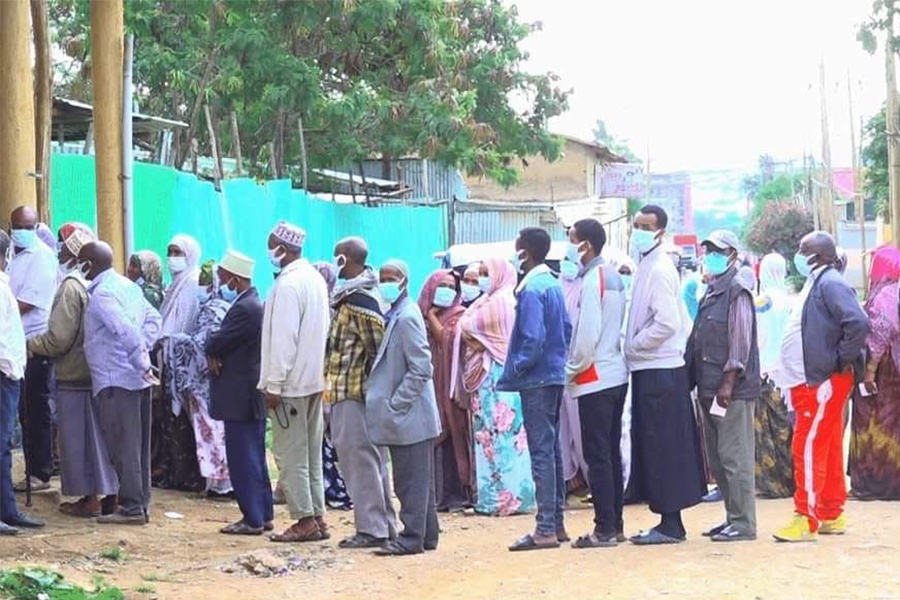
Apr 29 , 2023
By Bereket Balcha
On a recent Saturday afternoon, I found myself at the Century Mall in Addis Abeba, a personal favourite spot, when I unexpectedly bumped into an old acquaintance from university, Maheder Gebremedhin. It had been almost three decades since we last crossed paths; we eagerly caught up on each other’s lives.
I had been following Maheder’s radio show, “Kebet Eske Ketema,” literally translated as “From Home to the City,” on FM 102.1.
The show explores various topics, from urban development and architectural issues to celebrating the achievements of prominent builders and urban planners. Maheder’s talent as a radio host and relatable and honest approach makes the show engaging and informative. The program would often leave listeners eagerly anticipating the next episode.
On this particular day, Maheder mentioned a documentary film screening and panel discussion taking place at the Century Mall Cinema and invited me to join him.
Upon entering the Cinema, I was initially surprised by the documentary’s subject matter. Instead of the urban architectural theme I had anticipated, the documentary - “Urban Genesis” - focused on the story of Tilahun Ayalew, a farmer in his 50s living in rural Ethiopia. The documentary depicted his daily struggle and challenges while exploring broader social, economic, and political changes occurring in the country.
Directed by a Swiss filmmaker, Dodo Hunziker, the documentary took over seven years to produce and involved a team of architects, engineers, and consultants.
A key figure in the film is Fasil Ghiorgis, a prominent Ethiopian architect and academic known for his work on heritage restoration projects, such as the Saint Mary of Tsion Cathedral in Aksum and Baata Mausoleum in Addis. Fasil has also written extensively on Ethiopia’s architectural history, including a book titled “The City & Its Architectural Heritage, 1886-1941.”
Another central character is Zegeye Chernet (PhD), an esteemed architect, planner, and educator. He worked closely with the veteran Swiss architect Franz Oswald, who conceived the idea for the BuraNEST project, an experimental model town designed to combat the challenges of rural-to-urban migration. Oswald’s vision was to create a sustainable, self-contained urbanization model that could be replicated elsewhere in Ethiopia and beyond.
Benjamin Stähli, another significant character in the documentary, is an architect who became deeply involved in the BuraNEST project, even adopting Ethiopian Orthodox Christianity along the way.
As the documentary unfolded, it became clear that the BuraNEST project faced considerable challenges, testing the resolve and commitment of all those involved. However, it ultimately ended triumphantly, with the successful completion of the housing project and a heartfelt celebration of the team’s achievements.
Tilahun and his wife, Tigabnesh, were seen kissing Oswald in the traditional Ethiopian way, reserved for someone one truly and unreservedly respected. Tilahun’s “prodigal son”, who had left the village for a better life in Bahir Dar and later Addis Abeba, returned home and started enjoying life with his kin and kith, in the newly transformed rural-turned-urban town, which he built with the help of his father.
At the very end, Tilahun and Tigabnesh are seen competing feverishly in the exciting traditional dance, Eskista. The spectators clap hands, all eyes filled with great joy.
Following the screening, the audience was treated to a panel discussion featuring key figures from the documentary, including Fasil, Zegeye, Dodo, and Stähli. The conversation was lively and emotional, with many in the audience moved by the project team’s efforts.
The event concluded with a coffee and snack reception in the hallway outside the Cinema, where attendees could mingle and express their gratitude to the filmmakers and project team. It was a humbling experience to speak with these individuals who had devoted so much time and effort to improving the lives of rural Ethiopians, addressing the broader challenges of urbanization.
Unfortunately, Oswald was not present to see his dream come to fruition, but his impact on the project was undoubtedly felt throughout the event. Maheder's significant role in raising awareness of these issues through his radio show cannot be understated. Through his platform, he has made a substantial academic contribution and created a forum for exchanging ideas, resource mobilization, and critical assessment of contemporary urbanization and architectural development trends.
“Urban Genesis,” tells the inspiring story of the BuraNEST project and sheds light on the broader developmental challenges countries like Ethiopia faced. The documentary demonstrated that these issues can be tackled through innovative, collaborative, and domestically-driven solutions. By sharing the experiences and perspectives of those involved in the project, the film has undoubtedly sparked important conversations about sustainable development and urban planning.
As I left the event, I felt inspired by the dedication and optimism of the project team and the filmmakers. Their determination to make a difference in the lives of rural Ethiopians and their unwavering belief in the power of local communities to address their own challenges were a testament to the potential for transformative change.
“Urban Genesis” is a powerful reminder of the importance of addressing the complex challenges developing countries like Ethiopia face. It is a story that will resonate with audiences worldwide and serves as a call to action for everyone to do their part in creating a more sustainable and equitable future.
In a time when global challenges such as urbanization, climate change, and social inequality continue to grow, the story of BuraNEST and the individuals involved offers a glimpse of hope and a blueprint for sustainable development. This inspiring documentary and the ensuing discussions not only entertained and informed the audience but also left a lasting impact, encouraging each of us to play our part in creating a better world for all.
PUBLISHED ON
Apr 29,2023 [ VOL
24 , NO
1200]


Editorial | Jun 07,2020

Radar | Sep 07,2025

My Opinion | Jan 13,2024

Radar | Aug 05,2023

Fortune News | Jun 19,2021

Commentaries | Oct 12,2019

Radar | Oct 14,2023

My Opinion | Jan 07,2024

Fortune News | Sep 30,2021

Radar | Sep 14,2025

Photo Gallery | 177921 Views | May 06,2019

Photo Gallery | 168131 Views | Apr 26,2019

Photo Gallery | 158860 Views | Oct 06,2021

My Opinion | 137028 Views | Aug 14,2021
Commentaries | Oct 25,2025

Dec 22 , 2024 . By TIZITA SHEWAFERAW
Charged with transforming colossal state-owned enterprises into modern and competitiv...

Aug 18 , 2024 . By AKSAH ITALO
Although predictable Yonas Zerihun's job in the ride-hailing service is not immune to...

Jul 28 , 2024 . By TIZITA SHEWAFERAW
Unhabitual, perhaps too many, Samuel Gebreyohannes, 38, used to occasionally enjoy a couple of beers at breakfast. However, he recently swit...

Jul 13 , 2024 . By AKSAH ITALO
Investors who rely on tractors, trucks, and field vehicles for commuting, transporting commodities, and f...

Oct 25 , 2025
The regulatory machinery is on overdrive. In only two years, no fewer than 35 new pro...

Oct 18 , 2025
The political establishment, notably the ruling party and its top brass, has become p...

Oct 11 , 2025
Ladislas Farago, a roving Associated Press (AP) correspondent, arrived in Ethiopia in...

Oct 4 , 2025
Eyob Tekalegn (PhD) had been in the Governor's chair for only weeks when, on Septembe...

Oct 25 , 2025 . By YITBAREK GETACHEW
Officials of the Addis Abeba's Education Bureau have embarked on an ambitious experim...

Oct 26 , 2025 . By YITBAREK GETACHEW
The federal government is making a landmark shift in its investment incentive regime...

Oct 27 , 2025
The National Bank of Ethiopia (NBE) is preparing to issue a directive that will funda...

Oct 26 , 2025 . By SURAFEL MULUGETA
A community of booksellers shadowing the Ethiopian National Theatre has been jolted b...